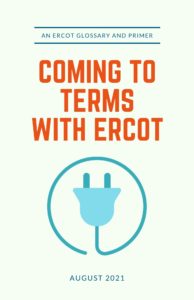The reduction, if approved by the PUC, should lead to lower wholesale power costs during extreme energy scarcity events, such as last February’s Winter Storm Uri emergency that left 4 million Texans without power
________________________________________________
In comments filed recently at the Texas Public Utility Commission, the Steering Committee of Cities Served by Oncor has expressed support for reducing ERCOT’s high Systemwide offer cap from $9,000 per megawatt hour to $4,500 per mWh.
The reduction, if approved by the PUC, should lead to lower wholesale power costs during extreme scarcity events, such as last February’s Winter Storm Uri emergency that left 4 million Texans without power. PUC staff had floated the idea in January, and requested input from market participants. The PUC rulemaking proceeding can be found under Project No. 52631.
The OCSC filed its comments on Sept. 30, noting in them that, “Winter Storm Uri uncovered unacceptable weaknesses not only in the electric infrastructure across the State, but also in the competitive market.”
The HCAP limits the price for which generators can offer to sell their power into the ERCOT administered wholesale market. Under ERCOT rules, the separate “Low Systemwide Offer Cap” (also known as the “LCAP”) replaces the HCAP under certain market conditions. Power priced at either the HCAP and LCAP would be orders of magnitude greater than the price of power sold during more typical market conditions
Oncor Cities Steering Committee Files Comments
Writing of behalf of the OCSC, attorneys Thomas Brocato and Taylor Denison expressed general support for lowering the HCAP to $4,500, but stated that the adjustment should be only one component of a needed comprehensive review of the state’s overall mechanism for pricing electricity during scarcity events. This review should include a separate discussion of the Operating Reserve Demand Curve, which is an automated system employed by ERCOT to create price adders for wholesale power during scarcity conditions. Such a review also should consider the interplay between the electric power system and natural gas supplies, the attorneys wrote.

Attorney Thomas Brocato
“The Operating Reserve Demand Curve (ORDC) failed during Winter Storm Uri, but more than that, the entire Scarcity Pricing Mechanism failed to provide sufficient incentive to assure that the generation fleet was prepared for weather extremes,” Brocato and Denison wrote. “Therefore, the Scarcity Pricing Mechanism failed to provide reliability at the lowest cost, and failed to incentivize generation owners to have existing units on-line, operable, and weatherized.”
LCAP vs HCAP
As noted previously, the LCAP replaces the HCAP under certain market conditions. However, the attorneys noted that during the February weather emergency, the HCAP persisted even after the market reached and exceeded those conditions. They also noted that the HCAP was not successful in attracting additional resources to the market. “This was primarily because severe winter weather, combined with poor winter preparedness, incapacitated both power plants and their fuel supplies,” wrote the attorneys. “Instead, the HCAP simply became a financial penalty value and not an economically-based incentive, as intended.
OCSC stressed that “the biggest problems during Winter Storm Uri were gas supply and lack of weatherization” and that the PUC should work with the Texas Railroad Commission to ensure there is adequate supply of critical natural gas at reasonable prices for the upcoming winter.
The PUC has set a deadline of October 28 for public comments in the proceeding, designated under Docket No. 52631 on the PUC website. If requested, the agency will conduct a public hearing on the issue on November 1 before making a final determination.
The PUC also is considering broader market design changes in Project No. 52373, Review of Wholesale Electric Market Design.
You can find more information about the HCAP, the LCAP, the ORDC and other ERCOT terms in the online glossary from the OCSC, found here.


